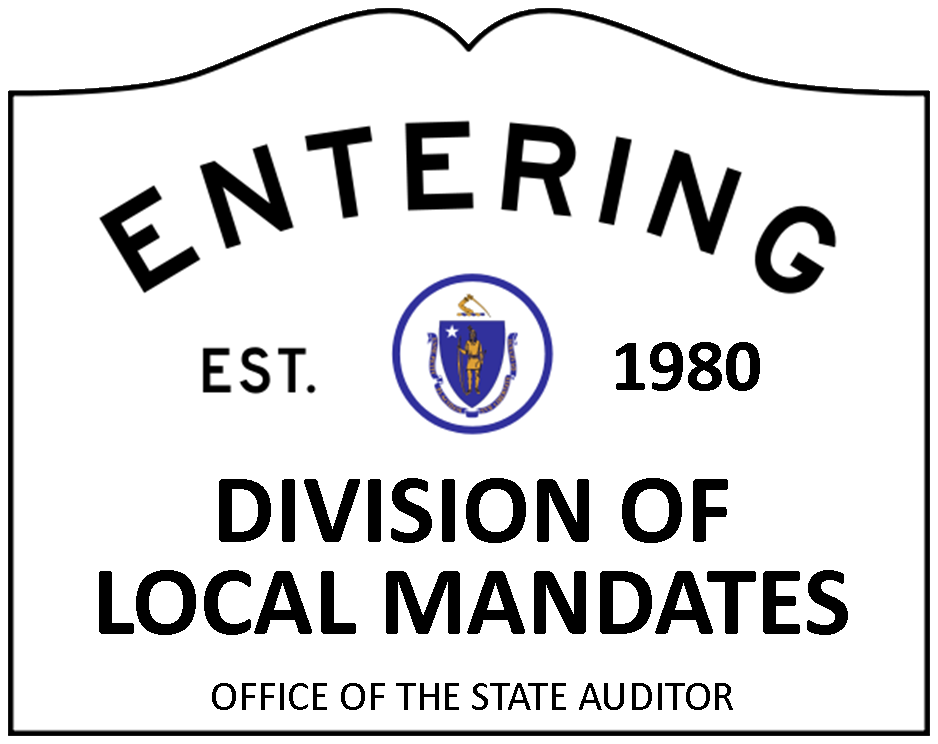- Office of the State Auditor
- Division of Local Mandates
Media Contact for Division of Local Mandates Five Year Report Points to Financial Impact of Laws on Municipalities
Samantha Ormsby, Director of Communications
BOSTON — Today, the Office of State Auditor Suzanne M. Bump (OSA) released her office’s Division of Local Mandates (DLM) Five Year Statutory Fiscal Impact Report, which reviewed 1,629 pieces of enacted legislation and identified 29 statutes which have a significant financial impact on cities and towns in Massachusetts. The report identified that the Commonwealth of Massachusetts continues to pass laws that often require resources from cities and towns for implementation. These measures are largely financed by local property taxes as state aid lags behind increasing local assessments. This report was undertaken in accordance to Section 6B of Chapter 11 of the Massachusetts General Laws, and covers calendar years 2016 through 2020.
“This report offers a thorough and detailed account as to how pieces of legislation and statutes impact the bottom line of municipal finances,” Bump said of the report. “It details how despite legislation having good intentions, there can be unforeseen cost elements associated, which can come in a variety of ways from adding staffing requirements, to adjusting formulas to determine costs, and requiring new services. It is our hope that this report is a useful tool to members of the legislature to take into consideration of how state laws impact the limited resources of our cities and towns.”
The 29 statutes identified as having a financial impact on cities and towns in Massachusetts fall within the categories of education, elections, employees, employment benefits, licensing, municipal services, public safety, and taxation.
These statutes identified as having a financial impact on municipal budgets and operations include examples such as:
- An Act Modernizing Municipal Finance and Government, which includes a section that provides a new formula for value of state-owned land that has a negative impact on certain municipalities;
- An Act Relative to Educational Opportunity for Students, which includes a section that rewrites definitions for the Chapter 70 program, as well as rules for calculating foundation budgets. These changes could cause higher spending by some districts that do not receive additional aid from the adjusted formula;
- An Act to Improve Public Records, which requires municipalities to designate and post the contact information of at least one employee as a records access officer, who will be required to coordinate, document, and respond to public records. This law limited opportunities to charge for public record requests;
- An Act Relative to Criminal Justice Reform, which requires local law-enforcement agencies to improve accountability for in-service training required by the Municipal Police Training Committee, as well as by this law. Enhanced curriculum includes bias-free policing and handling complaints involving persons with mental illness or developmental disabilities, among other topics.
"On behalf of cities and towns across the state, we applaud the release of Auditor Suzanne Bump's report, which expertly documents the fiscal pressures that municipalities face as they seek to deliver core services to community residents," said Geoff Beckwith, the Executive Director of the Massachusetts Municipal Association. "Auditor Bump's Division of Local Mandates clearly explains the financial challenges at the local level, with state aid to cities and towns not keeping pace with budget needs, state mandates that are not fully reimbursed, and a growing reliance on property taxes to fund municipal services. We fully support the Auditor's legislative and funding recommendations, which would provide real relief to our communities."
In addition to issuing its required five year fiscal impact report, DLM conducts municipal impact reports that explore various policy concern having a significant financial impact on municipalities that did not rise to the level of a mandate that required state support. In recent years, DLM has explored and made recommendations related to public infrastructure in western Massachusetts, water infrastructure, regional schools, educational services for children in foster care, municipal police training and accountability, and payments in lieu of taxes (PILOTs). These reports have had tangible impact on ongoing policy discussions and have contributed to higher funding in a number of areas. To learn more about recent municipal impact reports, please click here.
About the Division of Local Mandates
The Division of Local Mandates is a resource for local government officials who feel their community has been subjected to an unfunded mandate. In addition, it serves as a resource for state and local policymakers, and members of the public, seeking more information about key issues that are driving costs for local governments. The Division of Local Mandates serves under the Office of the State Auditor.
###
